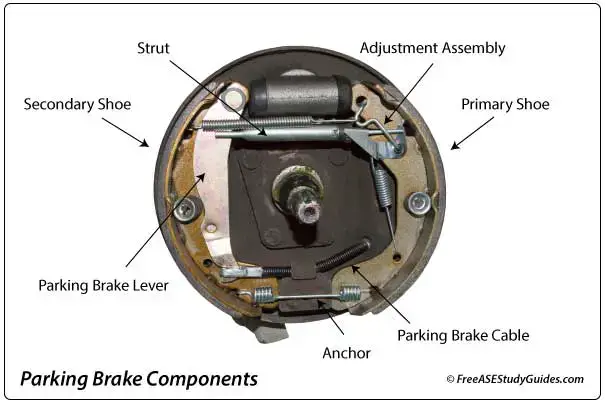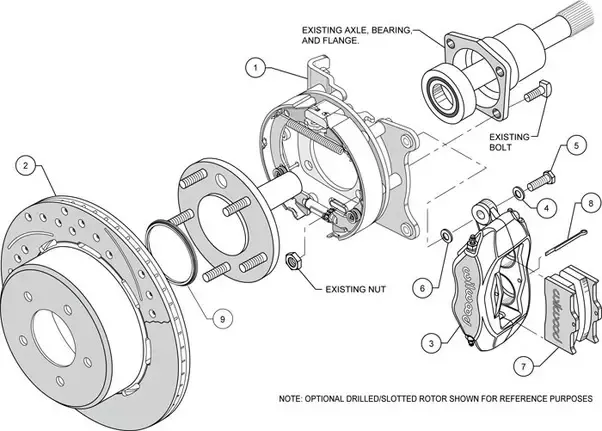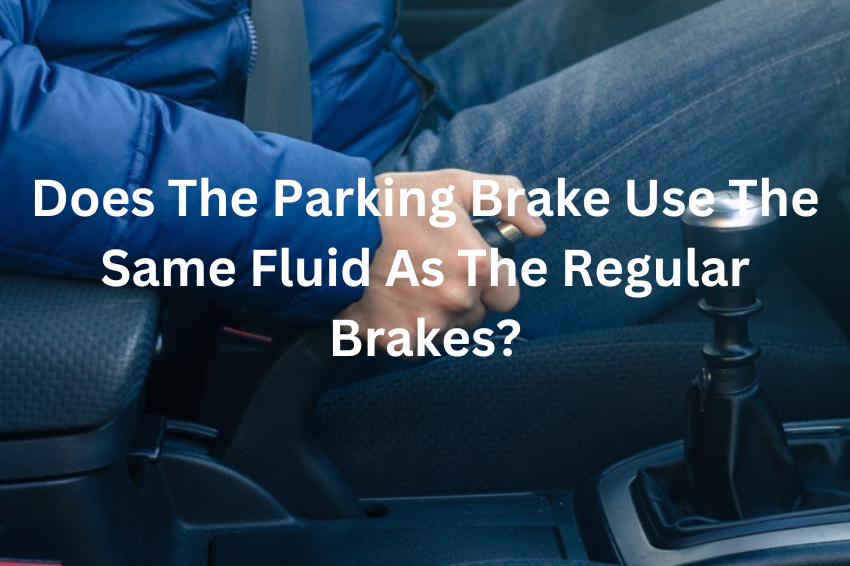“No, the parking brake (also called emergency brake or e-brake) uses a separate mechanical system from the car’s hydraulic brake system, which uses brake fluid.”
How Does The Emergency/Parking Brake Work?
The emergency brake, also known as the parking brake or e-brake works differently from your regular brakes (the ones you use with the pedal) and has its separate system.
However, there are two main types of parking brakes, depending on your car’s disc or drum brake system:
- Cable Parking Brake (for Drum Brakes): When you pull up the parking brake lever, a cable gets tightened. This cable is connected to levers on the rear wheels. As the cable tightens, these levers push apart special brake shoes inside the drums. These shoes press against the inner surface of the drum, creating friction that stops the wheels from turning.

- Parking Brake Mechanism (for Disc Brakes): In disc brake systems, the parking brake uses a separate mechanism instead of a cable. Engaging the parking brake lever activates a screw-like device that pushes a piston. This piston applies pressure to the brake pads, squeezing them against the disc, similar to how your regular brakes work, but on the rear wheels only.

As we’ve said, the parking brake is a completely mechanical system, separate from the hydraulic system that uses brake fluid for your main brakes.
This ensures you can still stop your car somewhat even if your main brakes experience a problem.
While the exact mechanisms might differ slightly, the overall purpose remains the same: to keep your car stationary when parked, especially on inclines.
It’s not recommended to use the parking brake as your primary way to slow down while driving.
It’s less effective than your regular brakes and can cause damage if overused.
Always release the parking brake before driving off.
You might not notice if you forget, and it can put extra strain on the system and reduce fuel efficiency.
What Happens If My Brake Fluid Is Low And I Use The Parking Brake?
Don’t be scared about the parking brake, because It’s a separate mechanical system from your main brakes and will still hold your car when parked even when your brake fluid is low.
However, low brake fluid is a serious issue.
Your car’s main brakes rely on brake fluid to create pressure and push the brake pads against the discs.
When fluid is low, this pressure weakens, making it harder to stop with the regular brakes, which can be dangerous while driving.
The good news is the parking brake uses a completely different system, typically cables or a mechanical linkage, to directly engage the brakes on the rear wheels.
This system is independent of brake fluid and will still function to keep your car from rolling away.
Even though the parking brake works, low brake fluid indicates a problem in the hydraulic system responsible for your main brakes.
This could be a leak, and ignoring it could lead to complete brake failure.
Low brake fluid is a sign you shouldn’t ignore, so, get your car checked by a mechanic as soon as possible.
They can top up the fluid (if safe) and diagnose any underlying issues with the brake system.
